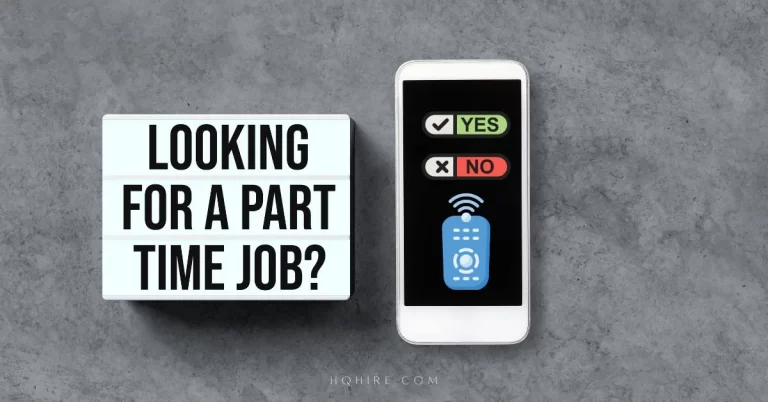Quit or be fired from your job?
There are a lot of unanswered questions regarding the choice between leaving your job voluntarily and getting fired.
In fact, we have done a comprehensive comparison of the pros and cons of quitting over getting fired, as well as the best time to leave your current job.
Even if you want to quit a job you hate, there are a few things you’ll need to know before leaving your job.
Things You Need to Know About Leaving Your Job on Quit or Be Fired
Quitting is a formal way of leaving your job, and it follows a formal resignation process of submitting your resignation letter, followed by serving your notice period, and finally leaving the company.
Employees generally quit due to toxic work environments, or better career opportunities.
Getting fired is when you are forced to leave the company. It is usually effective with immediate effect.
Either way, once you’ve decided to leave your job, you’ll need to make the necessary preparation before resigning, this is especially important if you are quitting without a job.
Here are some things you should know about quitting a job or being fired from a job.
Can you quit before being fired?
Yes, you can quit before being fired. Normally, an employer may offer the employee to formally resign instead of terminating their position. If you know you are going to be fired, you can choose to formally resign by giving your resignation letter.
Choosing to quit before being fired is often a better choice if you are being fired for the reason of misconduct or poor performance.
If the disciplinary process resulted in dismissal due to misconduct, this can affect your ability to find new employment.
Can you be fired after you resign?
Yes, you can still be fired after you resign, the company does have a choice to continue pursuing the disciplinary actions during your notice period, and they can dismiss you for misconduct or poor performance. This is depending on your employer and is not within your control.
Nonetheless, if you know you are getting fired for reasons such as misconduct, or poor performance.
Choosing to resign voluntarily may help you to avoid having a misconduct dismissal on your record, because you resigned first.
Can you ask to resign instead of being fired?
Yes, you can ask your employer to give you an option to formally resign instead of being fired. Often your employer will be willing as you will not be getting severance pay (if any) and it will also ensure that you will not be able to pursue any legal actions (if wanted).
Resigning from a job voluntarily allows you to leave on your own terms, and with no loss of reputation.
However, your unemployment benefit may be terminated, as well.
What if your employer asks you to resign?
If your employer asks you to resign, it is a form of negotiation. Your employer cannot fire you unless it is due to misconduct or poor performance.
By resigning willingly, you will miss out on the severance package, thus if you want to be compensated, you may want to negotiate with your employer for some form of compensation.
Can I be forced to Resign?
Forced resignation is when an employee resigns as a result of pressure from managers, supervisors, or members of a board. In some cases, forced resignation is illegal. This can result in a finding of constructive dismissal.
There are employment discrimination laws that can protect employees if they have been forced to resign.
But it is often hard to prove that an employee is forced to resign thus when your employer is “forcing” you to resign, it will be a better option to start your job search and move on with your career.
Can you be fired before your retirement?
No, your employer cannot fire you before your retirement if their intention is to prevent you from achieving full retirement status. You are protected by Employee Retirement Income Security Act (ERISA).
But this can be hard to prove in court, so it is important for you to keep records of your communication and events leading to your retirement.
If you are an “at-will” employee, your employer can fire you before your retirement as well. Employment that is at-will allows an employer to terminate employees at any time, for any reason.
Can you quit a job and get unemployment benefits?
Yes, you may still be eligible to collect unemployment benefits if you quit your job due to a “good cause”. However, employees who voluntarily quit without a good cause will not be eligible to get unemployment benefits.
Unemployment benefits are generally provided to employees who are out of work due to reasons that is out of their control.
Thus, in most cases, if you resign from your job voluntarily, you will not be eligible for unemployment benefits.
What is a good cause to quit your job?
A good cause to quit your job is are generally job-related reasons, where your safety is of concern, But the definition of a good cause for an employee to resign is highly dependent on your state law.
Your eligibility depends on where you live as unemployment programs are determined by each State.
Common reasons employees quit that may be considered a “good cause”
- Constructive discharge. May be eligible for unemployment benefits if you quit your job due to the work subjecting you to an unreasonable amount of risk, harassment, and dangerous working condition that lead to safety concerns.
- Domestic violence. May be eligible for unemployment benefits if you quit your job due to reasons related to domestic violence, such as being forced to quit your job in order to relocate with your child due to safety concerns.
- Medical reasons. May be eligible for unemployment benefits if you quit your job due to disability, illness, injury, or a medical condition related to the job (job caused or may aggravate the condition). Or for some States, you may still be eligible if you quit your job due to a family member’s medical condition.
So…
“Is it better to quit or get fired?” Check out my next article and find out!
Like this advice?
Let us know in the comments below!
Up Next… How much money do you need to be happy? Science has the answer!
Join over 11,000+ achievers who are committed to achieving their career goals!





